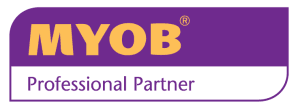Employer obligations under the National Employment Standards
Most Australian workplaces are governed by the Fair Work Act 2009.
The National Employment Standards (NES) are 10 minimum employment entitlements that are set out in the Fair Work Act 2009. The NES have to be provided to all employees. The national minimum wage and the NES make up the minimum entitlements for employees in Australia. An award, employment contract, or registered agreement can’t provide for conditions that are less than the national minimum wage or the NES.
The 10 minimum entitlements of the NES are summarised below:
- Maximum weekly hours of work –38 hours per week, plus reasonable additional hours.
- Requests for flexible working arrangements – an entitlement for certain employees to request flexible working arrangements
- Parental leave and related entitlements – up to 12 months unpaid leave per employee, plus a right to request an additional 12 months unpaid leave, plus other forms of parental and adoption‑related leave.
- Annual leave – four weeks paid leave per year, plus an additional week for certain shift workers.
- Personal/carer’s leave and compassionate leave – 10 days paid personal/carer’s leave, two days unpaid carer’s leave as required, and two days compassionate leave (unpaid for casuals) as required.
- Community service leave – unpaid leave for voluntary emergency activities and leave for jury service, with an entitlement to be paid for up to 10 days for jury service.
- Long service leave – a transitional entitlement for employees that comes from an applicable pre‑modernised award, pending the development of a uniform national long service leave standard.
- Public holidays – a paid day off on a public holiday, except where reasonably requested to work.
- Notice of termination and redundancy pay – up to five weeks notice of termination and up to 16 weeks severance pay on redundancy, both based on length of service.
- Fair Work Information Statement – must be provided by employers to all new employees, and contains information about the NES, modern awards, agreement-making, the right to freedom of association, termination of employment, individual flexibility arrangements, union rights of entry, transfer of business, and the respective roles of the Fair Work Commission and the Fair Work Ombudsman.
Who is covered by the NES?
All employees in the national workplace relations system are covered by the NES regardless of the award, registered agreement or employment contract that applies (however only certain entitlements apply to casual employees).
Casual employees only get certain NES entitlements which are:
- two days unpaid carer’s leave and two days unpaid compassionate leave per occasion
- maximum weekly hours
- community service leave (except paid jury service)
- to reasonably seek a day off on a public holiday
- the Fair Work Information Statement.
In some states and territories long serving casuals are eligible for long service leave.
In addition, where there is an expectation of ongoing work for a casual and the casual has been employed regularly and systematically for at least 12 months, they have extra entitlements from the NES. These are:
- the right to request flexible working arrangements
- access to parental leave.
There are two NES entitlements that apply to all full-time and part-time employees, whether they are covered by the national workplace relations system or not. These are:
- parental leave and related entitlements
- notice of termination.
How do the NES cover employees?
The national minimum wage and the NES make up the minimum entitlements for employees in Australia.
An award, employment contract, or registered agreement can’t exclude or provide for conditions that are less than NES, and those that do have no effect.
Awards and registered agreements can detail how the NES work.
For example, they may set out details about:
- averaging an employee’s ordinary hours of work
- cashing out and taking annual leave
- taking annual leave in advance
- taking excessive annual leave
- cashing out personal/carer’s leave
- taking time off instead of payment for overtime
- substituting public holidays
- when redundancy pay entitlements do not apply.
Awards and registered agreements can also supplement the NES by providing entitlements that are more favourable for employees.
In addition, employers and award and agreement-free employees (meaning they are not covered by an award or agreement) may also make agreements that affect certain ways the NES works.
Employers and award and agreement-free employees can make agreements about:
- averaging hours of work
- cashing out or taking annual leave
- substituting public holidays
- getting extra annual leave in exchange for foregoing an equivalent amount of pay
- getting extra personal/carer’s leave in exchange for foregoing an equivalent amount of pay.
Employment contracts can only provide entitlements that are similar or more favourable to the employee.
An employer must not contravene a provision of the NES. A contravention of a provision of the NES may result in penalties of up to $10,800 for an individual and $54,000 for a corporation.
This information has been obtained from the FairWork Australia website.
You can contact the Fair Work infoline on 13 13 94

Article Written by Callinda Beale.
Callinda is a member of the Institute of Chartered Accountants
and a Director of South East Accounting.










